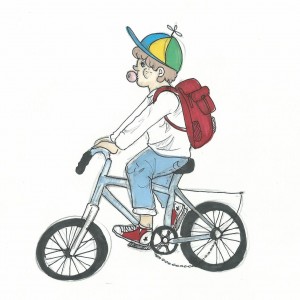Step Into Your Power
Let me show you how to find the power that I know is within you. Sign up for my mailing list and I will send you a free copy of my Five Daily Practices of Self Appreciation.
Unconditional Trust

Dear Doctor Life Advice,
As a psychiatrist, what do you consider the most intriguing and/or disquieting social behavior that you’ve noticed during the past year? Is there a name for and/or to describe this behavior, and what do you think is the cause(s) of it? Please explain whether you think the average person has either noticed or perhaps, exhibited, this behavior.
Signed: A Prolific People Watcher
Dear People Watcher,
I contemplated your question for quite a while. As a psychiatrist I watch people all the time, and I instinctively observe behaviors. There are many behaviors that I have noticed over the years. However the most intriguing one to me is a very simple one. I’m not sure there is an official name for this behavior. I have humbly named it “Unconditional Trust.”
I see Unconditional Trust towards drivers of cars in all pedestrians and bike riders. Although this may be a Southern California phenomenon, I find it interesting enough to write about it. I’ve noticed that when we drive our cars, surrounded by the tons of steel and metal in addition to airbags, seat belts, and other life saving inventions, we drive very carefully and do not trust other drivers to be concerned with our safety. We’re quick with our hands on the horn, or watching the patterns of other drivers, making sure they are not going to harm us. In essence, we don’t trust anyone’s driving except our own.
Once we find ourselves outside the car however, without all of the latest in protective inventions surrounding us, we immediately submit to the Unconditional Trust phenomenon. Have you ever driven in a parking lot, and noticed that pedestrians cross the lot without the slightest attention to the presence of your car or any other car for that matter? They are completely trusting in the assumption that you are going to see them and refrain from running them over. The phenomenon is even more scary to me when I observe bicyclers, especially when they are in a group, complete with helmets, biking shorts specially designed to cushion the bottom on the seat, and those sexy biking shoes. The bicyclers frankly drive in the middle of a major road, or instead of using the proper crossing sections, they simply wait with the cars in the left turn lane, and paddle along happily the second the lights turn green. It is taken for granted that the drivers of these massive vehicles will skillfully and safely maneuver their ways around the vulnerable bicycle(s).
It’s as if not being surrounded by the protective shell and safety measures of a car somehow makes the individual immune to being run over by one. Pedestrians and bikers everywhere move with utter and complete trust in the driving skills of every single driver that passes them in any type and size of a motor vehicle. They trust that in no way, shape or form will we take our eyes off of a road, and that nothing on earth would distract us from noticing the presence of the vulnerable individual. In fact, this trust is so strong, that they bet their very lives on it.
One may argue that the pedestrian or the biker always has the right of way. Whether or not that’s true is a mute point. The person driving in the car has the multi-ton weapon! Regardless of who had the right of way, my guess is that in a collision between a massive SUV and a pedestrian or a biker, there will be more damage done to the person outside of the vehicle. Are you willing to put your life on the line to claim your right of way?
Do you practice Unconditional Trust? I for one, am going to wait for the walk sign, and look both ways when crossing the street, bike in the bike lane and follow the rules, and watch out for cars in the parking lots. As far as I’m concerned, there are lots of inattentive drivers out there, and I have no intention of allowing one of them to run me over.
